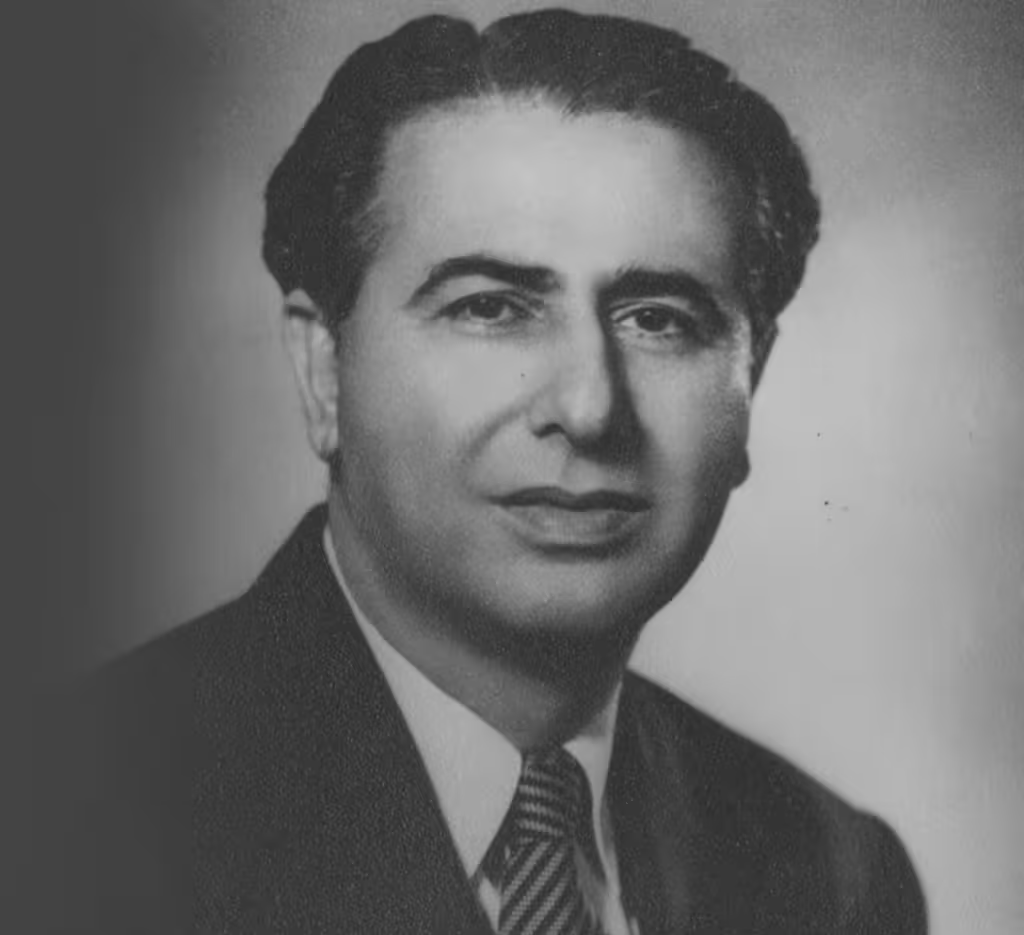Naval Tata was born on December 29, 1904, into a Parsi family in the city of Pune, Maharashtra, India. His father, J. R. Tata, was a prominent figure in the Tata Group, which would later play a pivotal role in shaping Naval’s career. After the death of his father when he was just 14 years old, Naval moved to Mumbai (then Bombay) to live with his uncle, the renowned industrialist J.R.D. Tata. This transition marked the beginning of his exposure to the world of business and industry.
Naval Tata pursued his education at the prestigious Elphinstone College in Mumbai, where he honed his skills in management and business practices. He later attended the University of California, Berkeley, where he graduated with a degree in industrial management. His education provided him with a solid foundation in the principles of business, which he would later apply in his career.

Naval Tata joined the Tata Group in the 1930s, a time when the conglomerate was expanding its footprint across various sectors, including steel, hospitality, and consumer goods. His journey within the Tata Group began at the Tata Steel plant in Jamshedpur, where he gained firsthand experience in operations and management. His knack for leadership and his understanding of industry dynamics soon positioned him as a key player within the organization.
In 1945, Naval Tata was appointed the chairman of Tata Steel, a pivotal role that would influence the company’s trajectory for decades to come. Under his leadership, Tata Steel became one of the largest steel producers in India, contributing significantly to the country’s industrial growth. Naval was instrumental in modernizing the steel plant, adopting new technologies, and expanding production capabilities. His efforts helped Tata Steel navigate the challenges of post-war reconstruction and emerge as a competitive player in the global market.
One of Naval Tata’s most significant contributions to Indian industry was the establishment of Tata Motors. In 1945, he spearheaded the company’s formation, recognizing the potential of the automobile sector in a rapidly industrializing India. Under his vision, Tata Motors initially produced trucks and commercial vehicles, focusing on meeting the needs of Indian businesses. The company laid the foundation for India’s automotive industry, which has since grown into a vital sector of the economy.
Naval’s leadership extended beyond vehicle production; he emphasized the importance of research and development, leading to innovations in automotive design and manufacturing. Tata Motors eventually diversified into passenger vehicles, gaining a reputation for reliability and affordability. Today, it stands as one of India’s largest automobile manufacturers, with a global presence.
Naval Tata was not only a successful businessman but also a dedicated philanthropist. He believed in the idea of responsible corporate citizenship and often emphasized the importance of giving back to society. His vision extended beyond profits; he sought to improve the quality of life for the communities in which the Tata Group operated.
He played a crucial role in establishing educational and healthcare institutions, advocating for social causes, and supporting various charitable initiatives. Naval Tata’s commitment to social welfare is exemplified by his support for the Tata Memorial Hospital in Mumbai, which provides cancer care and treatment to those in need.
Naval Tata’s legacy is woven into the fabric of Indian industry. His innovative spirit, commitment to excellence, and dedication to social causes have left an indelible mark on the Tata Group and the broader business landscape in India. He was a mentor to many leaders who followed in his footsteps, including his son, Ratan Tata, who took the reins of the Tata Group in the 1990s.
Under Ratan Tata’s leadership, the Tata Group continued to thrive and expand, with a focus on globalization and diversification. Naval Tata’s values of integrity, ethics, and corporate responsibility became the guiding principles for the group’s operations.
Naval Tata married Sooni Tata, with whom he had three children. The Tata family has a rich heritage, and Naval’s descendants continue to play significant roles in the Tata Group and various other enterprises. His family remains committed to upholding the values and principles he instilled in them.
Naval Tata passed away on February 14, 1989, but his legacy endures through the institutions he built, the businesses he nurtured, and the values he championed. He is remembered not only as a successful industrialist but also as a visionary leader who contributed to the socio-economic development of India.
Naval Tata’s journey from a young boy in Pune to a prominent industrialist exemplifies the spirit of entrepreneurship and innovation. His contributions to the Tata Group and the Indian economy have left a lasting impact. Today, he is celebrated as a pioneer who shaped the trajectory of Indian industry, demonstrating the power of vision, leadership, and social responsibility.
Akshat’s passion for marketing and dedication to helping others has been the driving force behind AkshatSinghBisht.com. Known for his insightful perspectives, practical advice, and unwavering commitment to his audience, Akshat is a trusted voice in the marketing community.
If you have any questions simply use the following contact details.